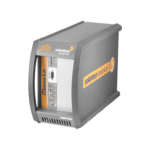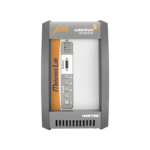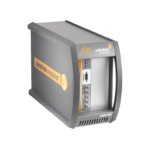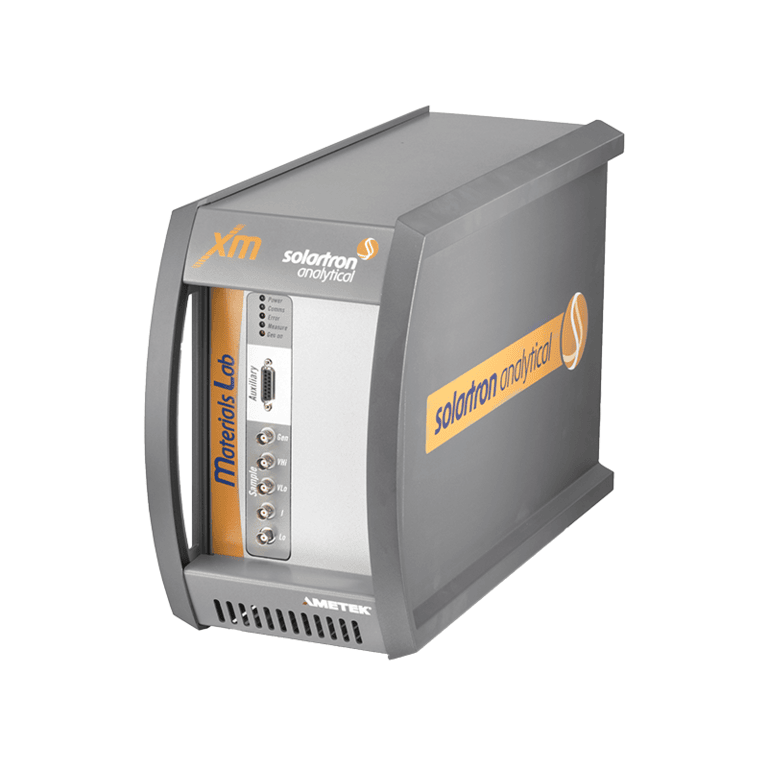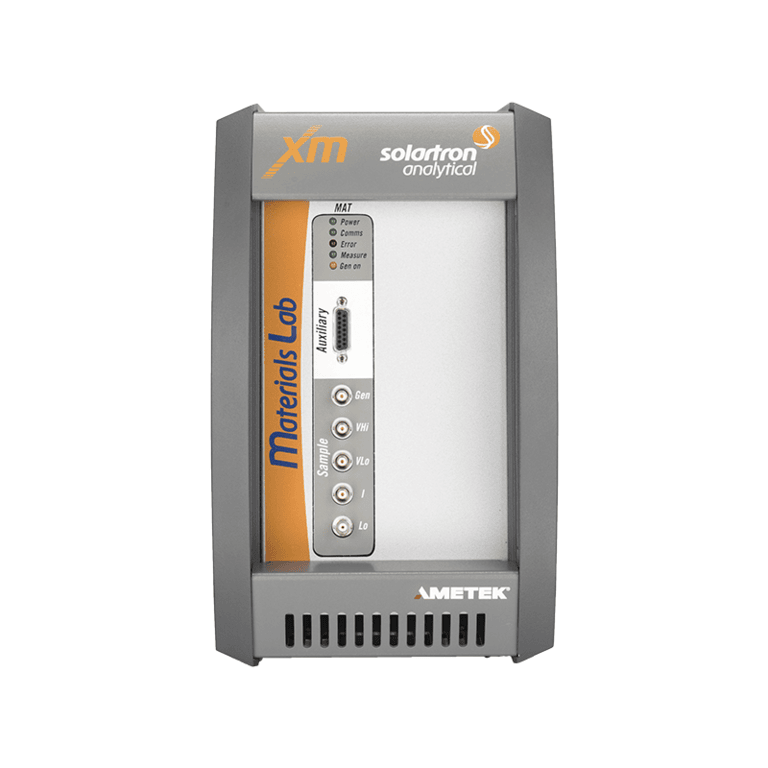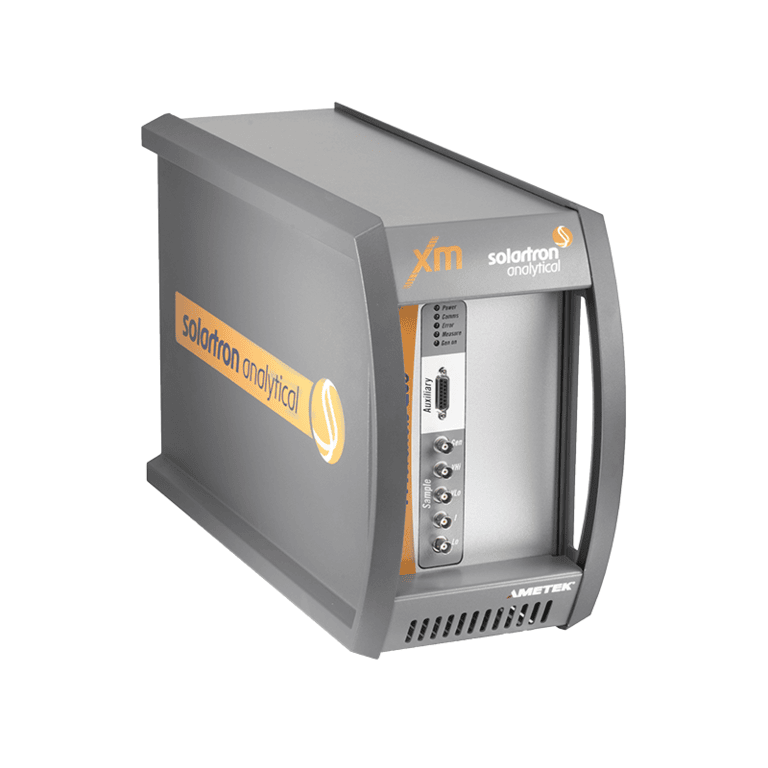Materials Lab XM is a versatile and modular system designed for high-precision characterization of materials. It provides advanced measurements across a broad frequency range, enabling in-depth analysis of materials’ electrical, dielectric, and electrochemical properties, making it ideal for research in fields like polymers, ceramics, and batteries.
Materials Lab XM
Description
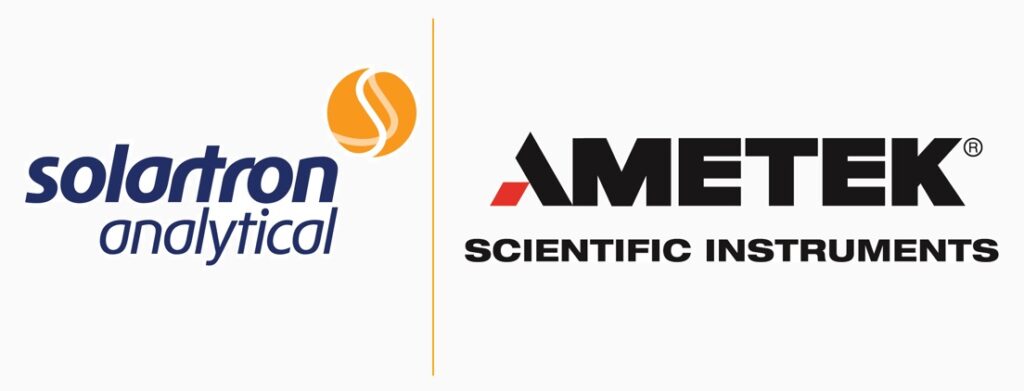
🟧 Materials Lab XM
The Materials Lab XM uses the same XM based platform to deliver ModuLab performance to a focused application, the study of Materials. This focused design allows this instrument to occupy a small footprint. ModuLab software includes integrated equivalent circuit analysis, MultiSine and Harmonic Analysis for non-linear materials.
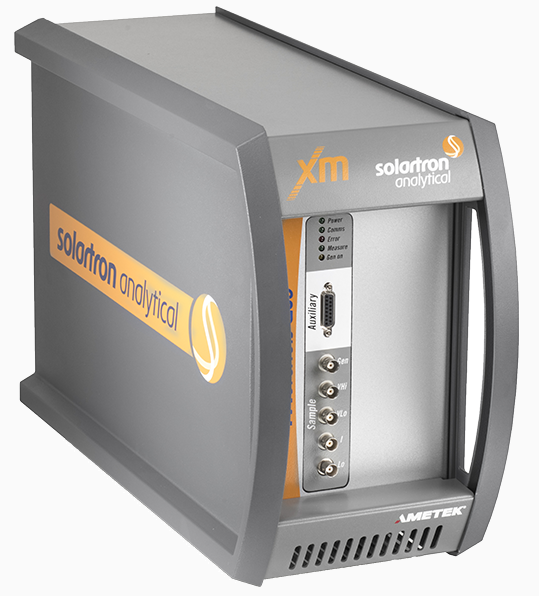
✅ Impedance range from 1 mOhm to 1 TOhm (1E15 Range)
✅ Small footprint and application-focus design
✅ Auxiliary measurement port for synchronized measurement of optical, mechanical or other transducers.
✅ Instant switching between time Domain (IV, fast pulse) and AC (C-V, impedance, Mott-Schottky) measurements without changing sample connections
✅ Low frequency to 10 µHz for degradation, trap state and material purity studies
✅ XM-Studio software is included with all XM Series systems
✅ Materials Lab XM impedance accuracy contour plot highlights Solartron’s best in class measurement performance.
🟧 Applications and Software
The Materials Lab XM can perform time domain (DC) and frequency domain (AC) tests. Accessories control temperature from cryostat to furnace levels and integrate through software control with the core measurement electronics to create a system to study a wide range of materials. ModuLab XM platform systems can be expanded for electrochemical or photoelectrochemical experiments.
Materials Lab XM’s impedance accuracy contour plot highlights Solartron’s best in class measurement performance.
🟧 The Materials Lab XM is a modular system that can be configured for the following applications:
➡️ Dielectric Materials:
Ferro/piezoelectrics | MEMs | NEMs | Multiferroics
Polymers | Solid oxides (SOFC) | Ionic conductors
Solid electrolytes, Quantum dots
➡️ Electronic Materials:
LED | LCD | OLED | MEMs | OPV | Si | DSSC | OFET | Ge | GaAs | Perovskite materials
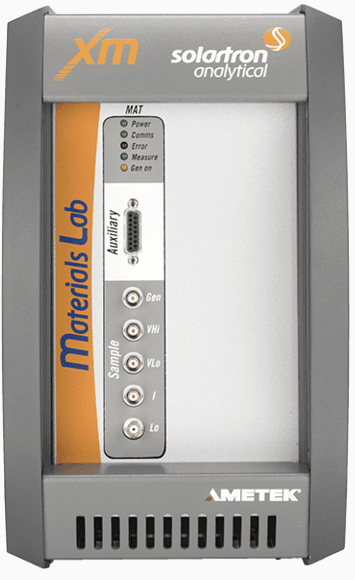
IDEAL FOR
✅ Polymer analysis – Precise characterization of polymer materials for performance evaluation in various applications.
✅ Ceramics testing – In-depth analysis of ceramics to assess their electrical, dielectric, and mechanical properties.
✅ Battery research – Measurement and evaluation of electrochemical properties in batteries and energy storage devices.
✅ Dielectric materials testing – Accurate impedance measurements for the study of dielectric materials in high-frequency applications.
✅ Composite materials analysis – Characterization of composite materials for use in engineering and manufacturing.
✅ Bio-materials research – Evaluation of bio-materials for applications in medical devices, sensors, and other biotechnologies.
✅ Electrochemical research – Detailed measurements in electrochemical systems to investigate corrosion, electrode behavior, and more.
✅ Material science studies – Broad application in materials science for understanding material properties and behavior under various conditions.
✅ Energy storage systems analysis – Measurement and analysis of materials for energy storage devices like capacitors and batteries.
✅ Material characterization – Comprehensive characterization of material properties such as conductivity, dielectric behavior, and more.

